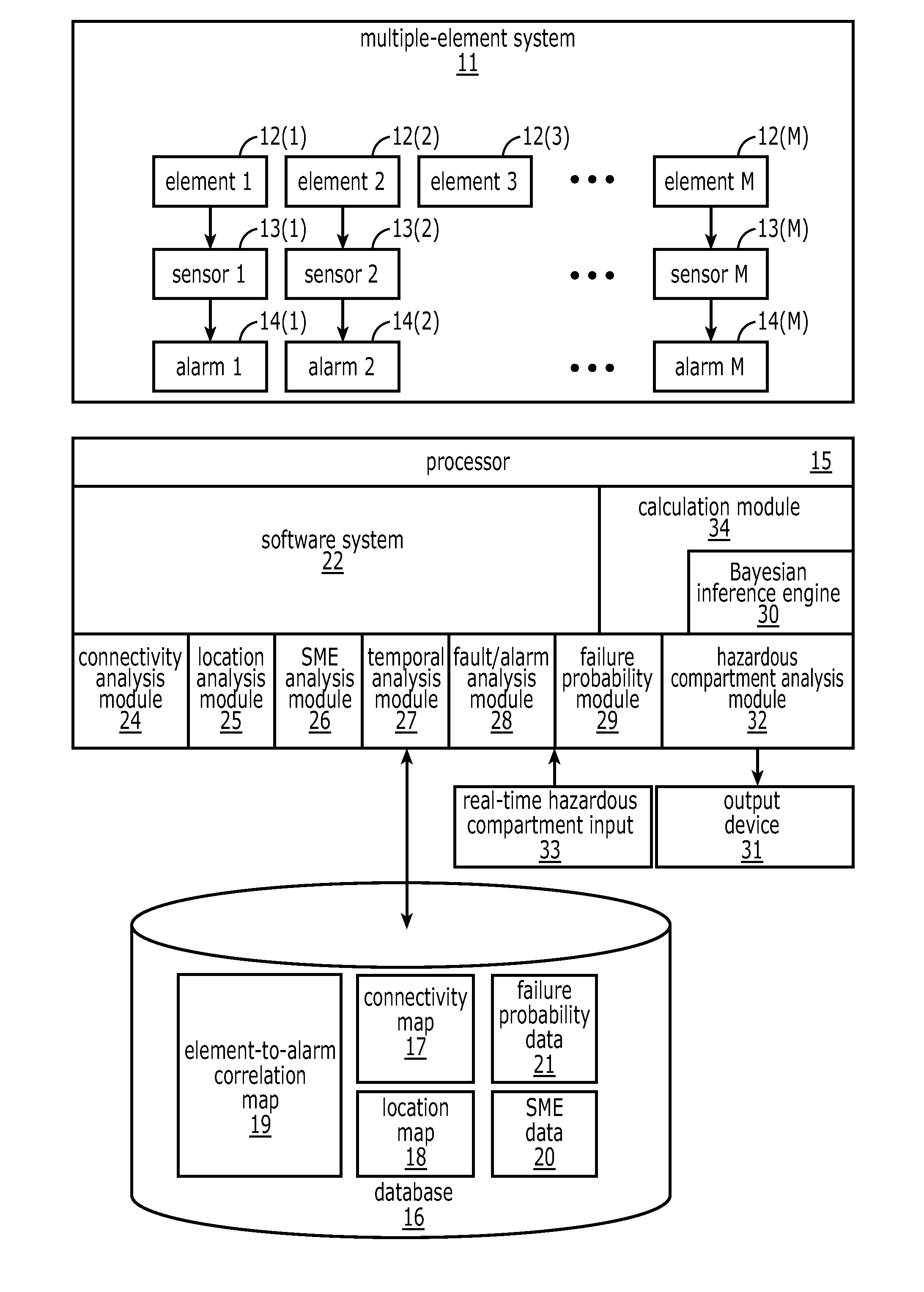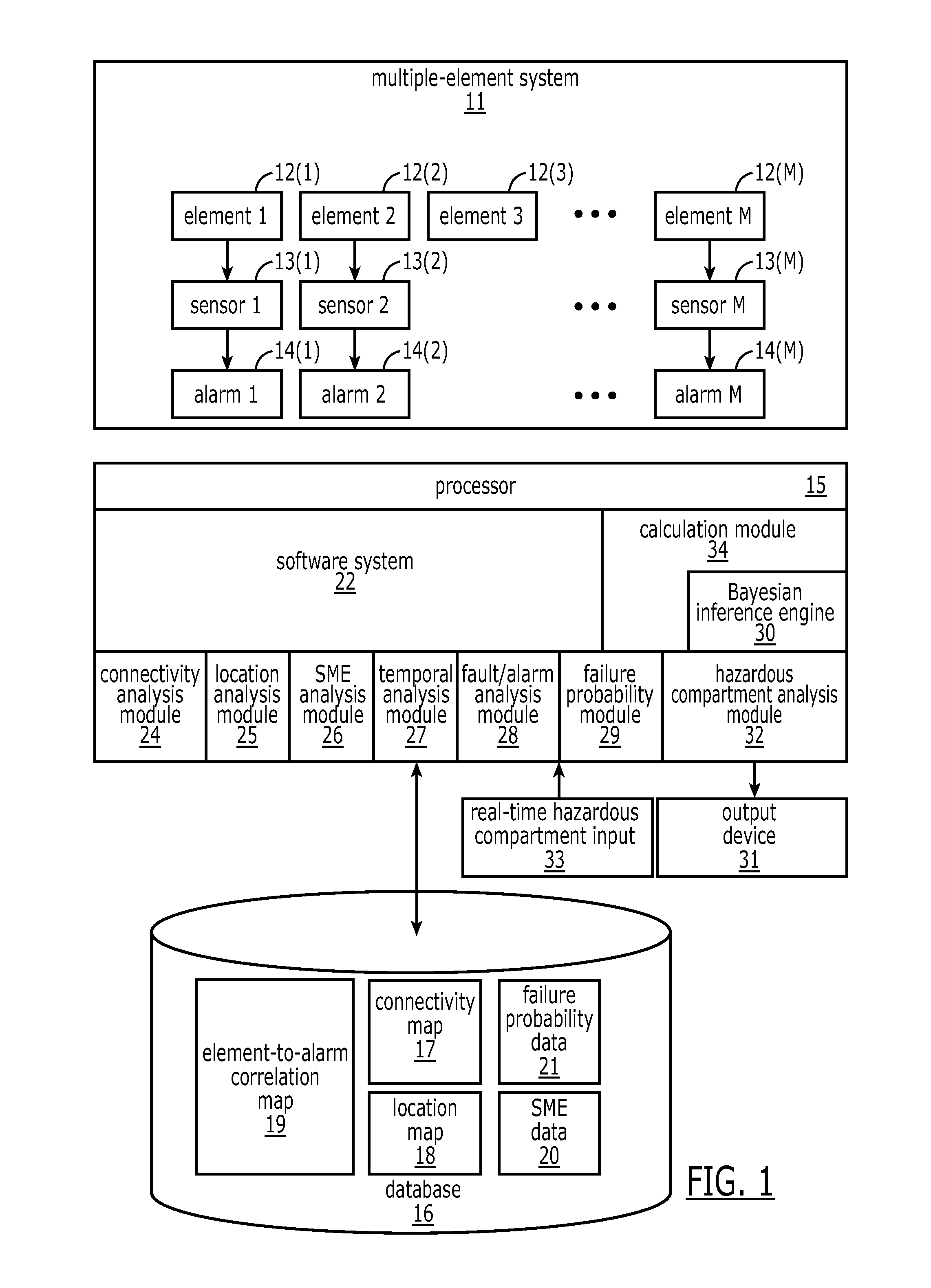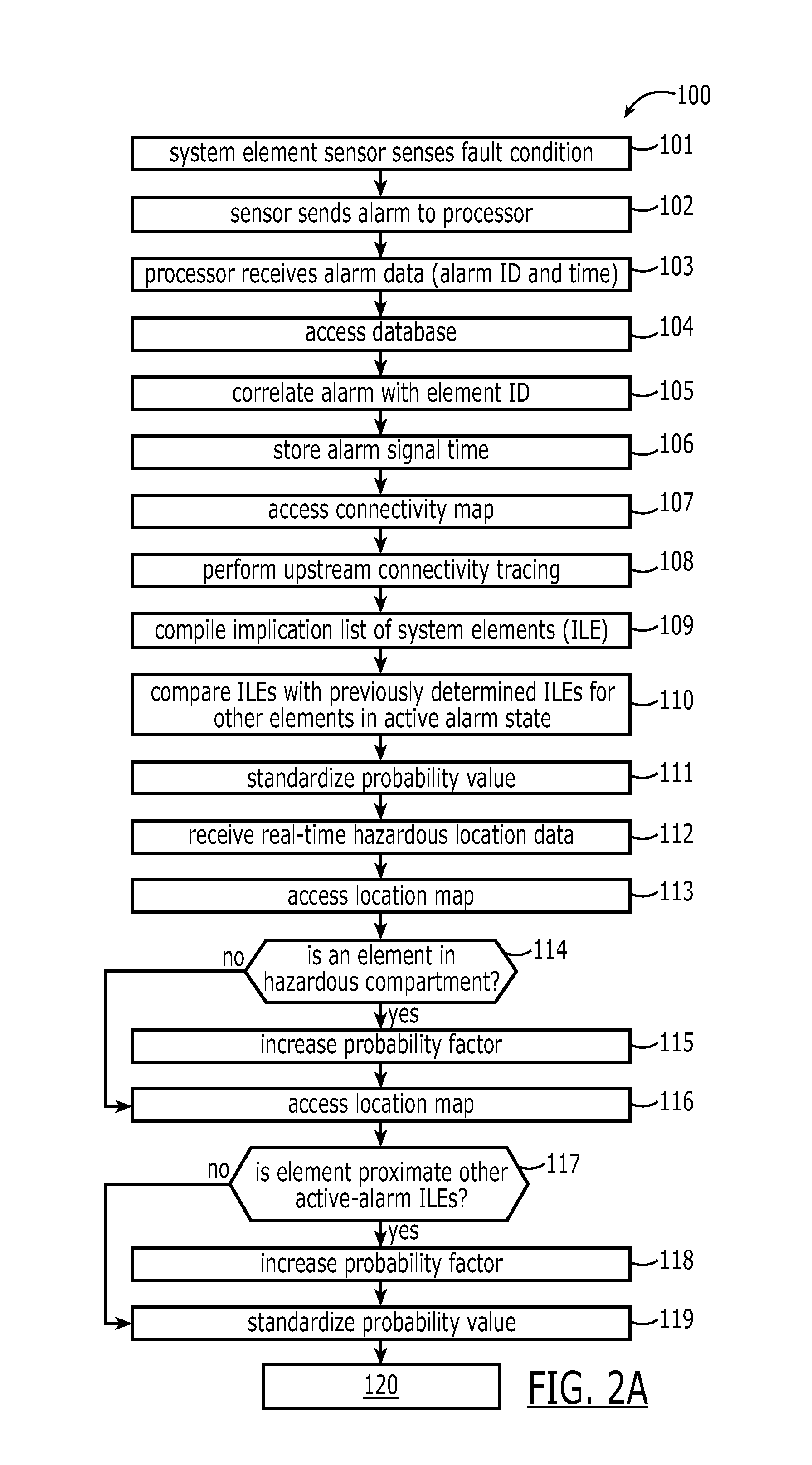Root-cause analysis system and associated methods
a root cause and analysis system technology, applied in the field of root cause analysis system, can solve problems such as obscuring the real problem, and achieve the effects of accelerating repairs, enabling staff reductions, and increasing repair effectiveness
- Summary
- Abstract
- Description
- Claims
- Application Information
AI Technical Summary
Benefits of technology
Problems solved by technology
Method used
Image
Examples
Embodiment Construction
[0033]A description of the preferred embodiments of the present invention will now be presented with reference to FIGS. 1-9.
[0034]In an exemplary embodiment, not intended as a limitation on the invention, a system 10 (FIG. 1) and method 100 (FIGS. 2A,2B) are provided for identifying the most likely source(s) of problems on a ship. One of skill in the art will recognize that the system and method are equally applicable to performing root-cause analysis on any complex, multi-element system 11.
[0035]An exemplary multi-element system 11 comprises element 112(1) through element M 12(M) (see, for example, the element list 23 of FIG. 5). At least some of the elements 12(1)-12(M) are in signal communication with a respective sensor 13(1)-13(M). Each sensor 13(1)-13(M) is adapted to issue an alarm signal 14(1)-14(M) (block 102) when a respective element 12(1)-12(M) is sensed to be in a fault condition (block 101). Not all elements in the multi-element system 11, however, are typically equipp...
PUM
 Login to View More
Login to View More Abstract
Description
Claims
Application Information
 Login to View More
Login to View More - R&D
- Intellectual Property
- Life Sciences
- Materials
- Tech Scout
- Unparalleled Data Quality
- Higher Quality Content
- 60% Fewer Hallucinations
Browse by: Latest US Patents, China's latest patents, Technical Efficacy Thesaurus, Application Domain, Technology Topic, Popular Technical Reports.
© 2025 PatSnap. All rights reserved.Legal|Privacy policy|Modern Slavery Act Transparency Statement|Sitemap|About US| Contact US: help@patsnap.com



